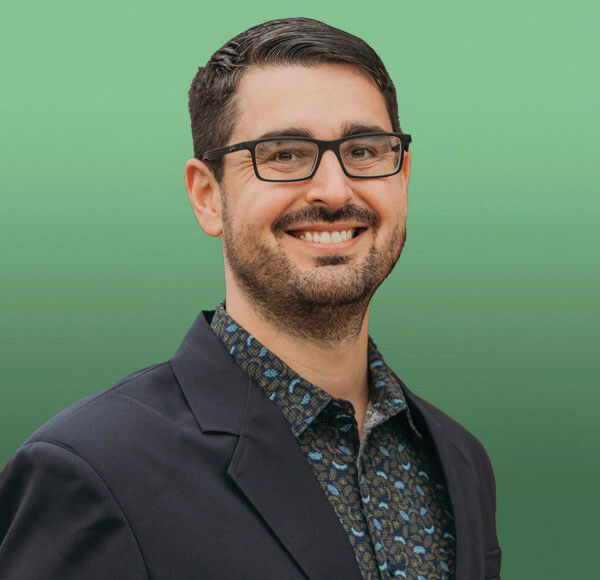Legislators Unveil Plan to Fight Addiction

Oregon lawmakers are homing in on a set of proposals to combat the state’s drug addiction crisis, including expanding access to treatment and reimposing criminal penalties for possessing small amounts of hard drugs.
The Legislature will consider House Bill 4002 during this year’s short session beginning Feb. 5. A framework for the bill was unveiled publicly Jan. 23 during a hearing before the Joint Interim Committee on Addiction & Community Safety Response.
House Speaker Dan Rayfield (D-Corvallis) and Republican Leader Jeff Helfrich (R-Hood River) also said behavioral health and addiction treatment are among their top legislative priorities heading into the 35-day session. They spoke at a forum on Jan. 19 hosted by the Salem City Club and co-sponsored by the Salem Area Chamber of Commerce and Pac/West Lobby Group.
HB 4002 is intended to fix problems with Measure 110, which voters passed in November 2020. The law decriminalized possession of heroin, methamphetamine, and other drugs, focusing on getting users into recovery rather than imposing harsh punishments.
But opponents of Measure 110 say it has not worked as intended, removing incentives for users to seek treatment through the justice system and leaving law enforcement with few tools to target drug dealers and public drug use. Public opinion has largely soured on the measure, with polls showing that 64% of Oregonians support a partial repeal.
The Joint Interim Committee on Addiction and Community Safety Response is now considering a suite of policy changes in HB 4002. Senate Majority Leader Kate Lieber (D-Beaverton), who also chairs the committee, said that while the specific bill language has yet to be drafted, legislators need to act with urgency.
“We know that we have got to fix the addiction crisis we’re facing,” Lieber said.
Provisions for HB 4002 were divided into two sections — public health and public safety. On the public health side, the bill would, in part:
- Make it easier for doctors and pharmacists to prescribe and dispense medications used to treat substance abuse, and prohibit insurers from denying or delaying coverage through prior authorization or other pre-review processes.
- Prohibit long-term care facilities and residential facilities from refusing to admit someone based on medication-assisted treatment for substance abuse.
- Require the state Alcohol and Drug Policy Commission to study barriers to treatment for youth and submit a report back to the Legislature by Sept. 15, 2025.
- Establish a certified community behavioral health clinic program under the Oregon Health Authority, providing 24-hour emergency mental health services and at least 20 hours per week of primary care services. OHA would need to submit plans for adding this program to the Centers for Medicare and Medicaid Services by Jan. 15, 2025.
On the public safety side, lawmakers’ proposals include:
- Making drug possession a Class C misdemeanor, punishable by up to 30 days in jail, a fine of $1,250, or both. Users could only be prosecuted if they decline to enter a qualifying drug treatment and deflection program.
- Increasing criminal penalties for people dealing drugs in public parks or within 500 feet of a homeless shelter or drug treatment center.
- Redefining “delivery” of drugs to include possession with intent to sell.
- Increasing the amount of time someone can be kept on a welfare hold in treatment or detox facilities from 48 hours up to 72 hours.
Lieber said HB 4002 won’t exist in a vacuum, and that lawmakers would also target more funding for the state’s drug courts and recovery housing in separate legislation.
“We’re going to continue this work into 2025,” she said. “This isn’t the end of this work.”
Republican lawmakers, along with a coalition of city and law enforcement groups, criticized the HB 4002 framework for not going far enough. They have sought stiffer penalties for drug possession, arguing it should be a Class A misdemeanor with up to one year in jail and a $6,250 fine.
In a statement, Dan Primus, president of the Oregon District Attorneys Association, said the proposals are a “good starting point,” but more work needs to be done.
“While there are a few of the elements of the law enforcement (recommendations) included, like recriminalizing possession of a small amount of serious drugs, a C-Misdemeanor is insufficient,” Primus said. “In addition, limiting communities’ ability to charge this crime only if they have a qualifying deflection program is not a statewide solution. Unnecessarily complicating a C-Misdemeanor on the front end and back end threatens to strip all benefits of any recriminalization.”
At the Salem City Club forum, Rayfield said there is no disagreement among lawmakers about what issues are facing the state. He and Helfrich discussed their parties’ approach to battling addiction, increasing housing statewide, and investing in economic development.
While their parties’ approaches to the issues may differ, both men emphasized the need for bipartisanship to come up with durable solutions.
“Jeff and I are going to disagree,” Rayfield said. “But I know the two of us working together can find some sort of solution to make these things work.”
For his part, Helfrich said he is a glass-half-full person.
“I believe the House is in order, and we can get into some solutions,” he said. “We have a lot of challenges in front of us. We have some things to fix. That’s what we were sent here to do.”





